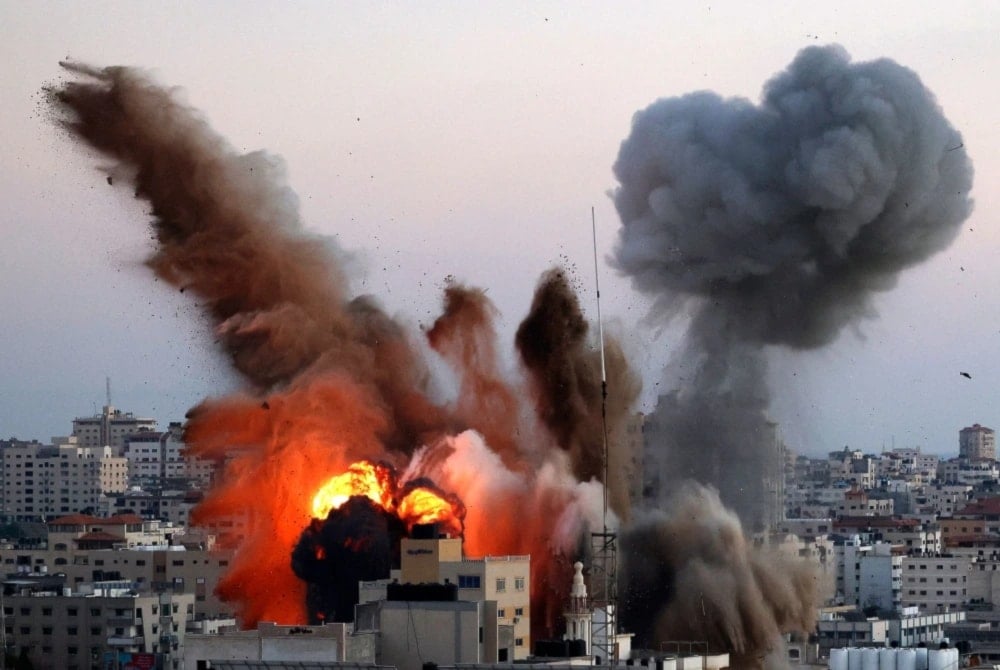Global arms sales surge amid wars, regional tensions: Report
The world’s top 100 arms companies have recorded total sales of $632 billion, a 4.2% increase from the previous year.
-

Smoke billows after an Israeli airstrike on Gaza City targeted residential buildings in the Gaza Strip. (AFP)
Global arms sales saw significant growth in 2023, driven by wars in Ukraine and Gaza and escalating tensions in Asia, with notable gains among manufacturers in Russia and the Middle East, according to a report published Monday by the Stockholm International Peace Research Institute (SIPRI).
The world’s top 100 arms companies recorded total sales of $632 billion, a 4.2% increase from the previous year. After a dip in 2022 due to supply chain issues, many arms manufacturers ramped up production to meet rising demand. For the first time, all 100 companies tracked by SIPRI surpassed $1 billion in annual sales.
"There was a marked rise in arms revenues in 2023, and this is likely to continue in 2024," said Lorenzo Scarazzato, a SIPRI researcher. Despite this growth, the demand outpaced production capacity, with companies launching recruitment drives to address the shortfall.
Dive deeper
Smaller manufacturers, specializing in components or systems with simpler supply chains, adapted more quickly to the heightened demand linked to the wars in Gaza and Ukraine, as well as rearmament efforts in East Asia, noted Nan Tian, Director of SIPRI's Military Expenditure and Arms Production Programme.
Among the leading players, US companies maintained dominance, accounting for half of global arms revenues. While sales for US manufacturers rose by 2.5%, giants like Lockheed Martin and RTX (formerly Raytheon Technologies) saw slight declines of 1.6% and 1.3%, respectively, due to ongoing supply chain challenges.
In Europe, arms manufacturers experienced an average sales increase of just 0.2%, as many were still fulfilling older contracts. However, demand spurred by the war in Ukraine boosted revenues for specific products like ammunition and air defense systems.
Russian arms makers saw a sharp 40% surge in sales, with state-owned Rostec achieving a 49% increase, reflecting an economy increasingly oriented toward wartime production.
Israeli companies reported record sales of $13.6 billion, a 15% increase, while Turkish arms makers, including drone producer Baykar, saw a 24% rise, fueled by defense investments in Ukraine and Turkey.
In Asia, South Korean firms led the rearmament drive with average revenue growth of 39%, followed by Japanese companies at 35%. Chinese manufacturers saw only a modest 0.7% rise in revenues, totaling $103 billion, as the country faced broader economic challenges.

 3 Min Read
3 Min Read








